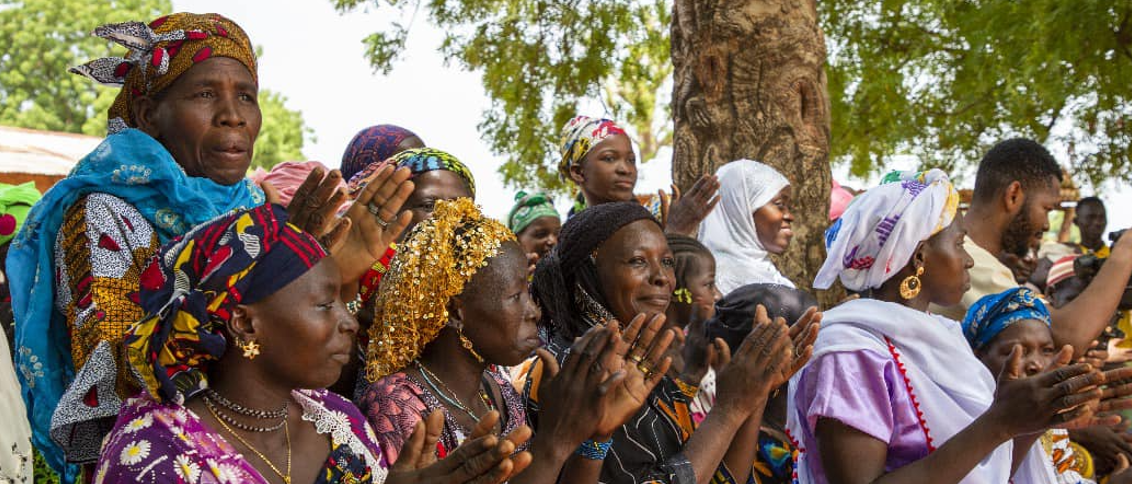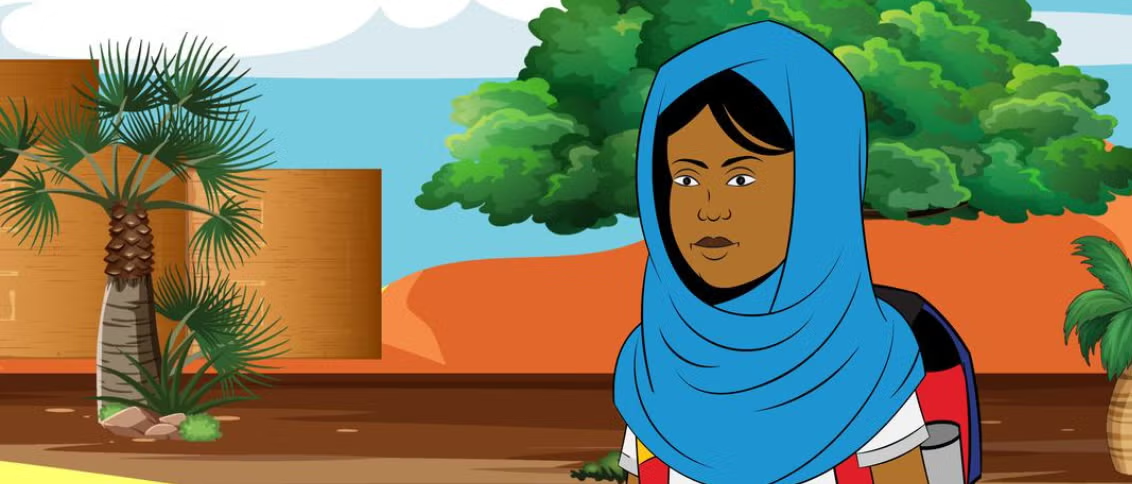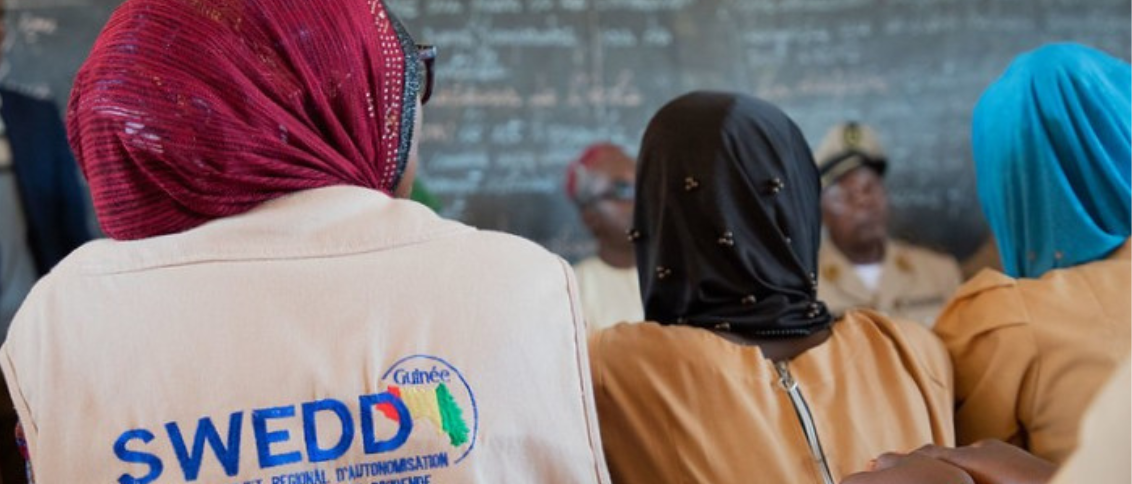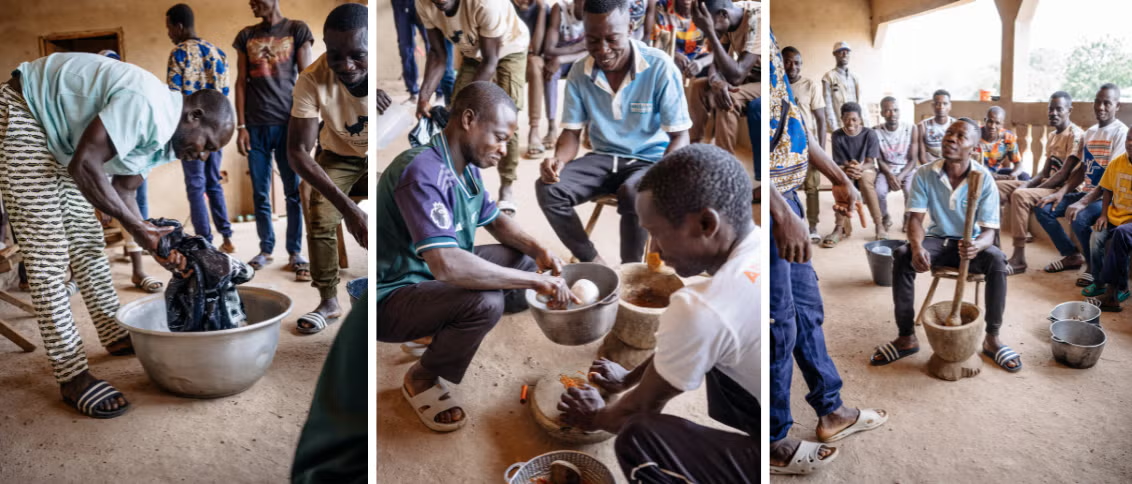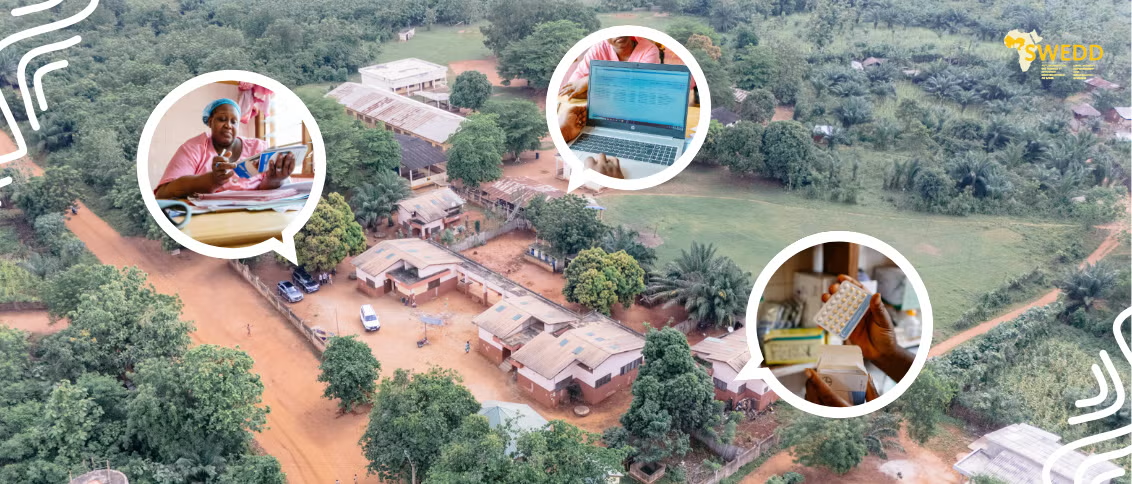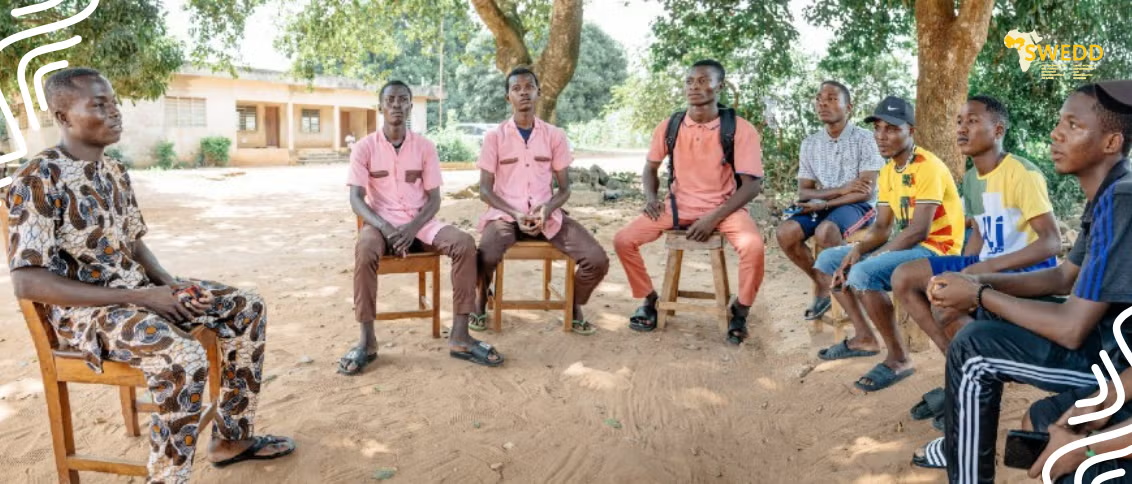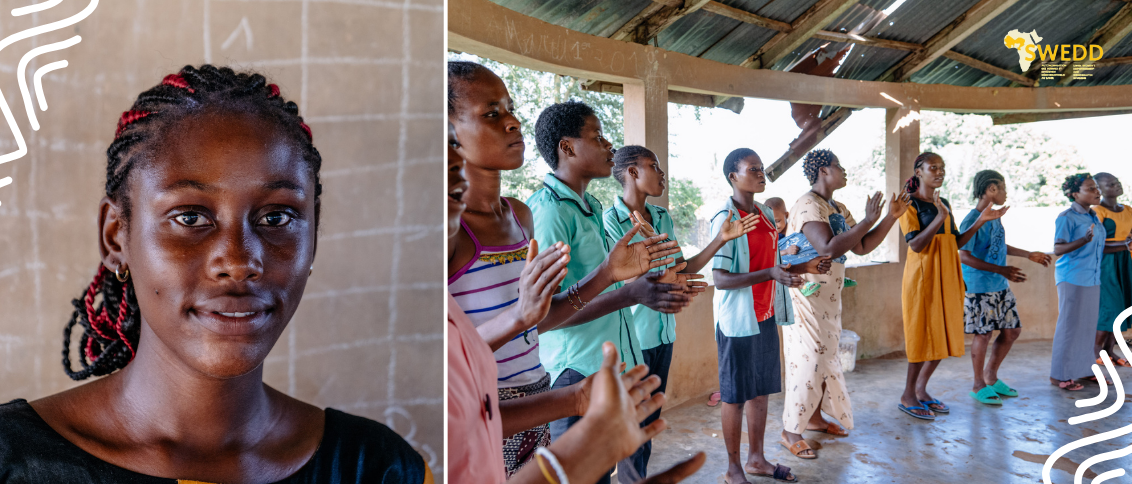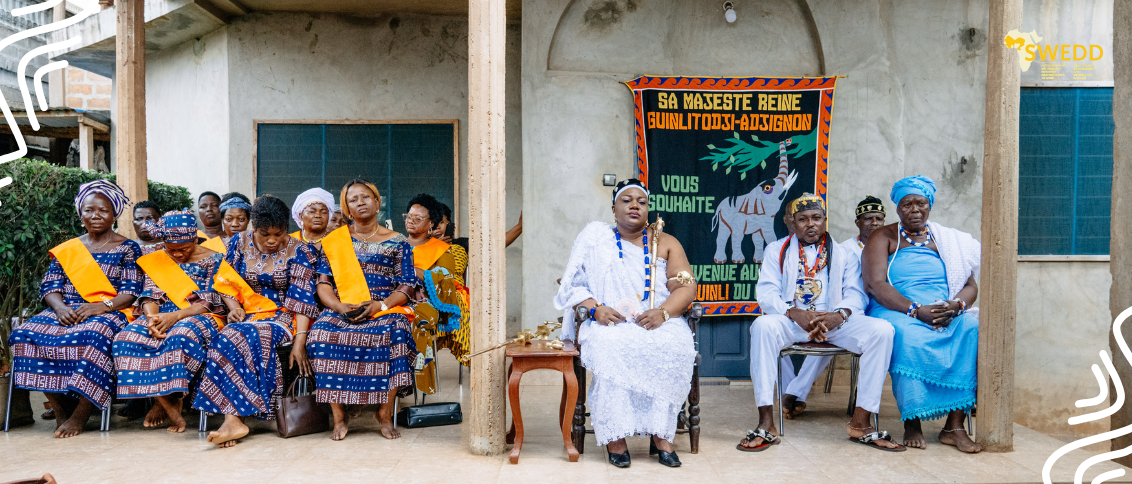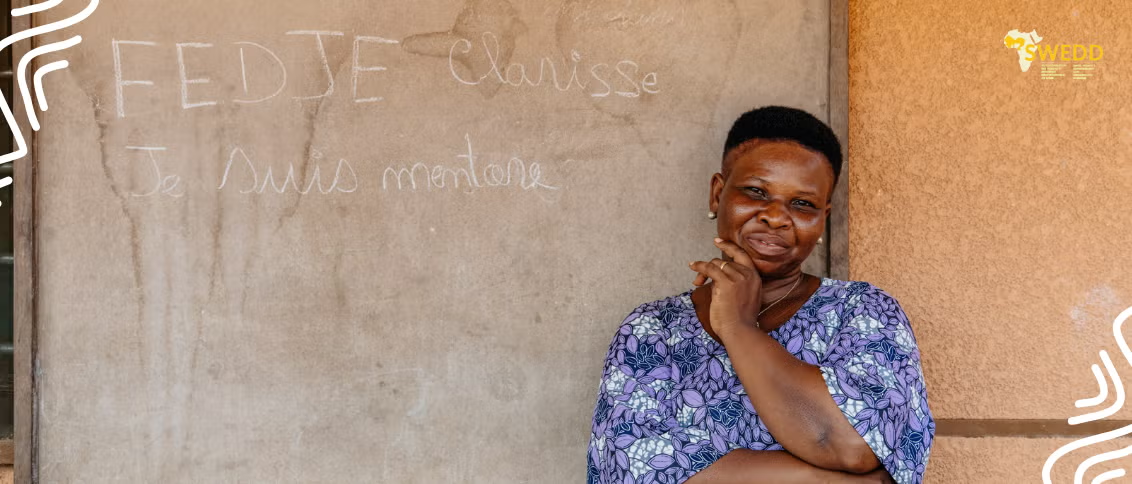

NEWS
The success of the SWEDD project in Mali: Sustainable socio-economic transformation for women and girls
02 October 2024

Since 2019, the SWEDD project in Mali has been working to reduce the shortage of midwives in outlying areas with poor healthcare coverage. Through bold initiatives, this project has enabled 15 private midwifery practices to be set up in regions where access to healthcare was limited. The 'Bassa Coulibaly' private midwifery practice, located in Banankoro on the outskirts of Bamako, is a particularly inspiring initiative.
Moussokoura Konaré oversees the practice, which employs seven people and has conducted over 4,400 curative consultations, 2,100 antenatal consultations, and 700 deliveries in just four years. Thanks to the support of the SWEDD project, the practice has generated a profit of more than 30 million CFA francs, which has been reinvested in the purchase of a plot of land, the extension of the premises and the construction of accommodation for the midwives. This success demonstrates the pivotal role played by SWEDD in enhancing maternal and child healthcare in Mali.
‘My dream has always been to open a local midwifery practice to offer quality services at a lower cost to my sisters and mothers. Thanks to the SWEDD project, I was able to realise this dream in 2019 sooner than expected,’ said Mossokoura Konaré, promoter of the “Bassa Coulibaly” Banancoro private midwifery practice.
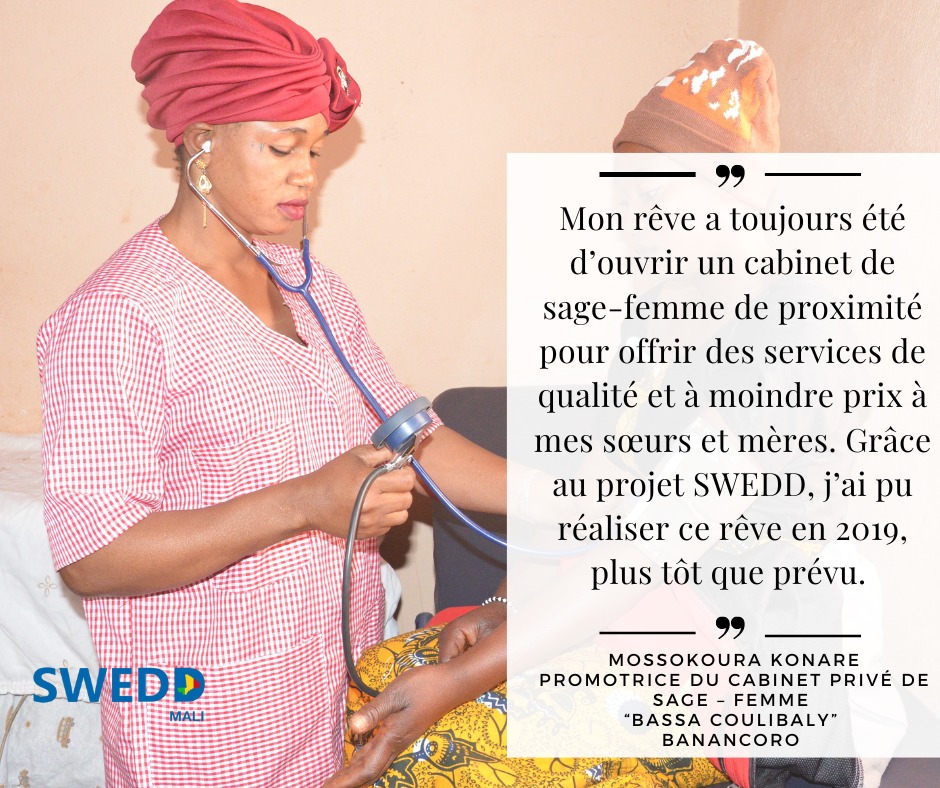
The scope of SWEDD extends beyond reproductive health. Additionally, the project facilitates the economic empowerment of women through the diversification of income-generating activities (IGAs). Loise Guindo, who initially trained as a beauty hairdresser, has diversified her revenue streams to include the rental of wedding dresses and the rearing of sheep and pigs. As a result of her increased financial independence, Ms. Guindo is now able to provide for both herself and her children while also supporting her husband with family expenses.
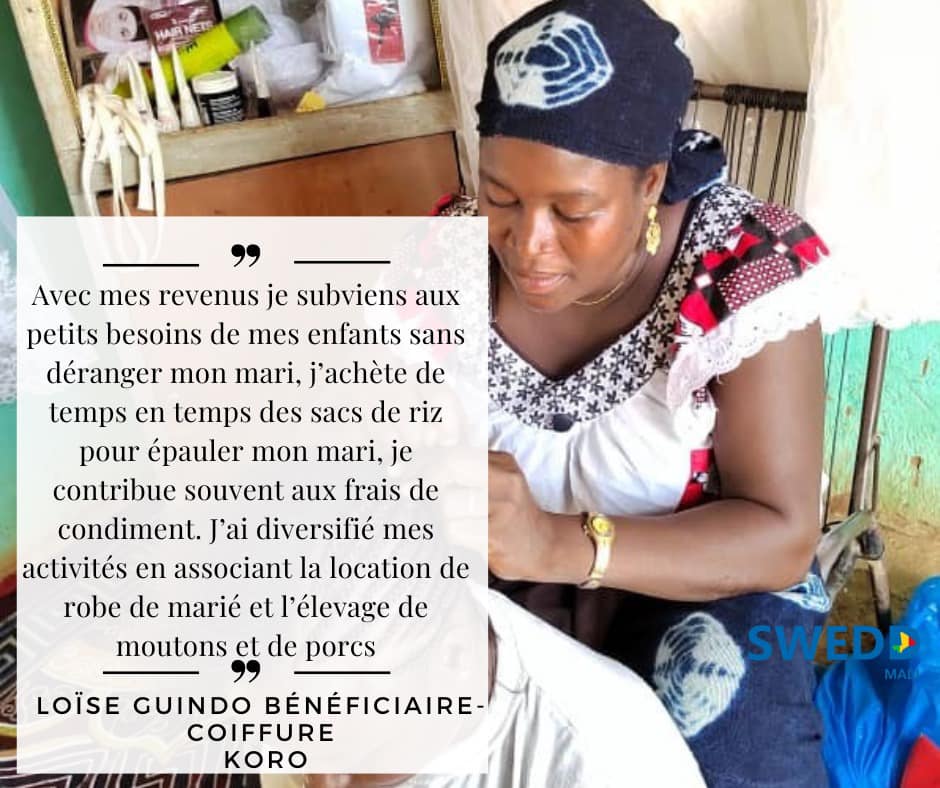
In addition to these economic successes, SWEDD is working to keep girls in school. The distribution of bicycles is a concrete response to the challenge of distance from schools, one of the main causes of girls dropping out. To date, 7,900 girls have received a bicycle, enabling them to continue their education despite the long distances involved.
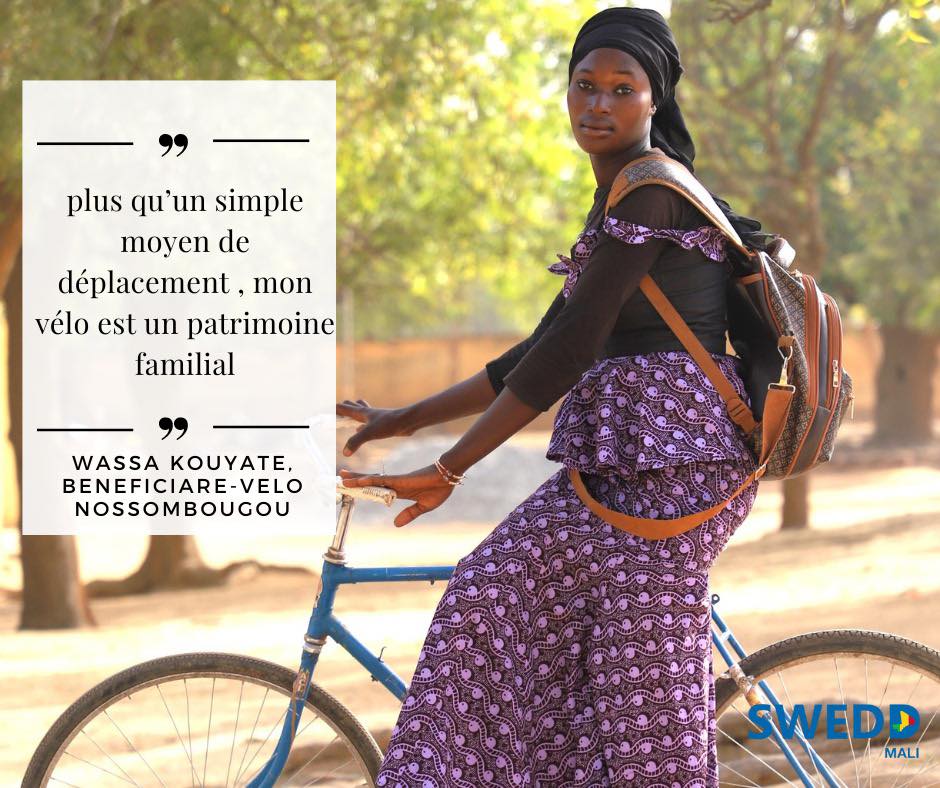
For Wassa Coulibaly, a student in the Koulikoro region, these bicycles are not just a means of transport, but a real family heirloom, used both for study and for agricultural work.
The support provided by the SWEDD project also extends to craft activities. Kadia Sylla, a screen printer and calligrapher set up by the NGO AFAR in the Ségou region, is a case in point. Thanks to SWEDD's support, she now generates a turnover of 460,000 CFA francs per quarter, with a monthly income of 100,000 CFA francs, strengthening her economic independence.
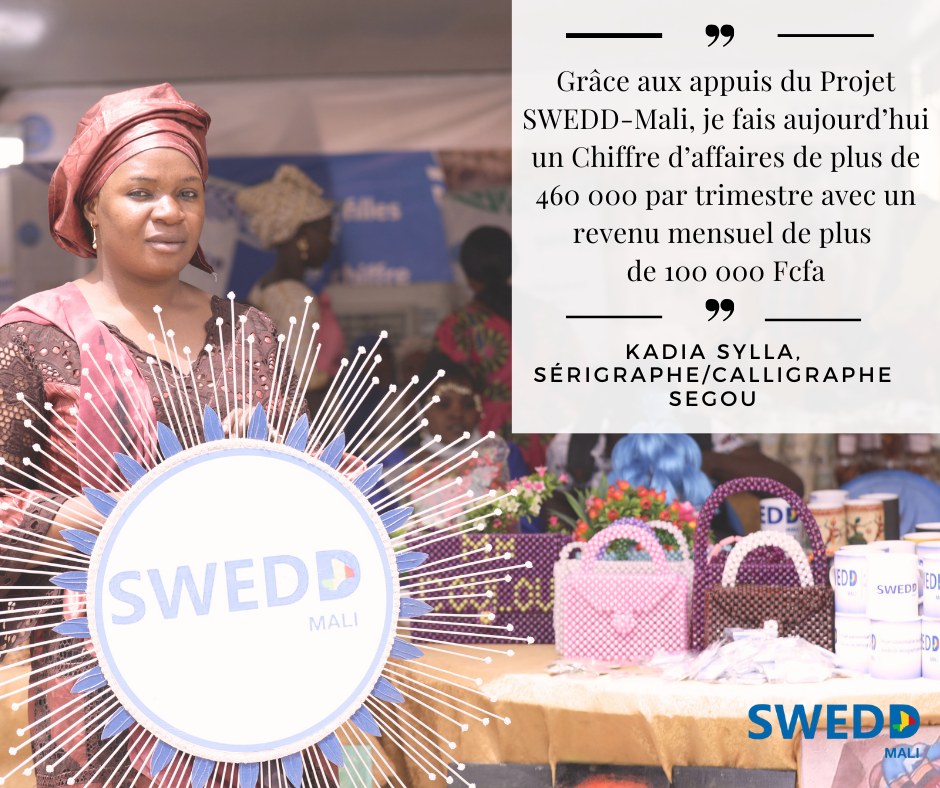
The SWEDD Mali project, through its multiple strategies, continues to reduce poverty, promote the empowerment of women and strengthen human capital. Its actions in favour of girls and women show that investment in gender equality is a powerful lever for sustainable development.
